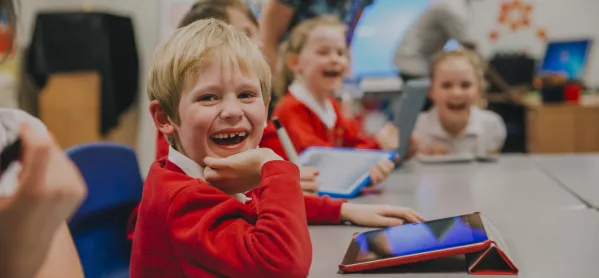- Home
- ‘Three education policies that could change lives’
‘Three education policies that could change lives’

The Labour Party lost in December because the country didn’t trust it to govern. People didn’t believe that Jeremy Corbyn would deliver what he promised in his manifesto.
Labour MP Jess Phillips argued that, for too many people, the party offered an avalanche when what they needed was a lifeline. Some great policies - policies that our communities need - were hidden in a rolling wave of snow.
If Labour is going to win power, this has to change. Labour will only be credible if it speaks the truth, says what its priorities are and convinces the public that it can get things done.
When laying this challenge at the Labour Party’s door, I keep getting asked, “So what would your manifesto look like?”
That’s a fair question, the price of criticism being a valid alternative and all that.
So I want to show exactly what I mean, using the education section of Labour’s manifesto as an example of where the party had great ideas, hidden in a snowstorm.
Three great Labour education policies
1. The National Education Service
The first good policy was the National Education Service.
Knitting early years, schools, colleges and universities together into a single, national, unified service is a big idea. It would allow Labour to set out an entitlement from cradle to grave for everyone, regardless of their background. And it would shine a light on the parts of the service that were not fairly funded.
The National Education Service would also push politicians to think about education from the perspective of an ordinary person.
It would be a single service, like the NHS, which helps every individual to make the most of their talents throughout their life. I think the public would like it, too, as it speaks to how people think about their services. Building it should remain Labour’s first priority.
2. The early years of education
Labour was right to talk about additional spending in the early years of education. This is the second policy that should have been front and centre.
There is lots of evidence that strengthening this part of the new National Education Service would improve child development, particularly for children from low-income families.
Labour’s policy should be bold and simple: 30 hours a week of free early years provision for all two-, three- and four-year-olds, and a Sure Start centre for every child, from birth through to the age of 2.
This would be good for children, good for parents (particularly mums) and good for the economy.
3. Great teaching
The final great policy was harder to find, but the outline was there. We all want every child to go to a great school or college, so we can end educational inequality.
But, if we’re going to ensure that it happens, the evidence is clear: it’s great teaching that makes the difference.
Great teaching needs great teachers, and that means better development, better pay and a more manageable workload.
To attract - and keep - great teachers, we have to become the best place in the world to be one.
What really matters in education
That’s three great education policies that could change lives.
But last year, instead of focusing on these ambitious goals and what they’d mean for normal people, Labour allowed itself to be dragged into pointless, thinktanky debates about legal structures of schools (which parents don’t know or care about) and scrapping Sats and Ofsted.
Parents don’t want to get rid of Ofsted: they rely on it to make sure their children are getting the support they need.
Distractions like these stopped Labour from talking about what really matters, and undermined voters’ confidence that the party knew what it was talking about at all.
Nye Bevan, the Labour architect of the NHS, put it best when he said that “the language of priorities is the religion of socialism…the argument is about power…because only by the possession of power can you get the priorities correct”.
So here are three big priorities, to be delivered over five years by a progressive, radical Labour government: an integrated, properly funded National Education Service; a significant investment in early years; and becoming the best place in the world to be a teacher.
Matt Hood is chair at Bay Leadership Academy
Keep reading for just £1 per month
You've reached your limit of free articles this month. Subscribe for £1 per month for three months and get:
- Unlimited access to all Tes magazine content
- Exclusive subscriber-only stories
- Award-winning email newsletters



